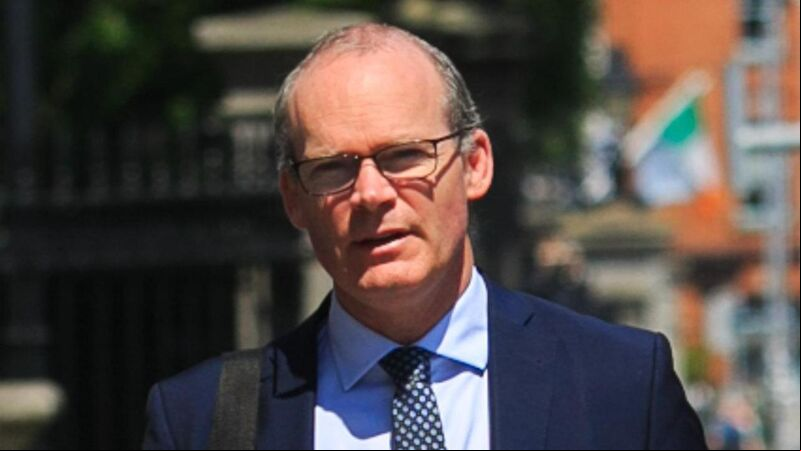Brexit: Simon Coveney tells US congress of growing tension between EU and UK

Mr Coveney said: "We explained what happened last week in the context of the tension around the protocol, the divisions and polarisation of politics in Northern Ireland related to that.. Photo:Gareth Chaney/Collins
Foreign Affairs Minister Simon Coveney has told an influential group of US Congress about the growing tension between the EU and the UK over issues around Brexit.
Mr Coveney and EU Commission vice president Maros Sefcovic spoke to the Friends of Ireland caucus on Wednesday, including its chairman, Congressman Richie Neal.
The group discussed Northern Ireland and concerns around the UK's unilateral extension of post-Brexit grace periods.
Mr Coveney said: "We explained what happened last week in the context of the tension around the protocol, the divisions and polarisation of politics in Northern Ireland related to that.
"And why the relationship between the EU and the British Government is so strained at the moment on this issue.
"The need to try to re-engage in discussion, because without finding a way forward through dialogue, which of course has to be the preference for everybody, then Maros Sefcovic outlined that the EU side really has no option but to take legal action, which will begin this week."
Mr Coveney told RTÉ: "The truth is that politics is very strained in Northern Ireland because of perceptions around the protocol and its implementation.
"My job is to ensure that what has been agreed, as a mechanism to deal with the disruption that Brexit causes on the island of Ireland, which is the protocol, is part of an international treaty, as part of international law.
"Last December, Maros Sefcovic and Michael Gove, who is a very senior person in the British Government, agreed an implementation plan and an approach to implement the protocol, and we are simply saying that we need to ensure that that happens now.
"Of course, the EU has been considering and will consider further if flexibilities need to be accommodated, if there are genuine problems in of implementation, how we solve them.
"But that has got to be done collectively between the EU and the UK.
"We cannot move forward on the basis of one side just deciding unilaterally 'Well, this is what must be done and we can't wait for the other sides to agree with us', and that's essentially what the British Government has done."










 App?
App?


